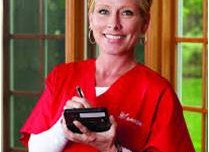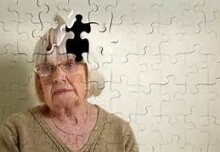 It’s the season of holidays. We started with Thanksgiving and then Channukah, and we have yet to tackle Christmas and the ringing in of The New Year. They’re not just celebrations…they’re opportunities to spend important time with family and friends that we may not see often throughout the rest of the year; they may also be a great way to chase away some of the blues that may coincide with the long nights and overcast skies of the season.
It’s the season of holidays. We started with Thanksgiving and then Channukah, and we have yet to tackle Christmas and the ringing in of The New Year. They’re not just celebrations…they’re opportunities to spend important time with family and friends that we may not see often throughout the rest of the year; they may also be a great way to chase away some of the blues that may coincide with the long nights and overcast skies of the season.
And there are other health risks for aging adults in America, with dementia, depression and dietary insufficiency forming the three D’s for caregivers. Starting with dementia, less than 1 percent of adults between 60 and 64 years of age suffer from some sort of dementia. But by the time adults reach age ages 80 to 84, that prevalence is about 12 percent, and it doubles once they exceed 90 years of age. Depression is one of the most common conditions of aging adults with estimates of about one in five adults over age 65 suffering at some point with clinical depression. Poor diet can be even higher than this with one group of researchers pegging the prevalence of malnutrition among older adults at nearly 23% across 12 developed countries. Are you ready for the holidays? If you are a caregiver visiting an older loved one during the holidays, look for the following signs:
- Dementia…
- Without being prying, check your loved one’s refrigerator; look for how well-stocked it may be as well as signs of decay or mold on food.
- Take note of their overall hygiene; are they bathing with enough frequency or laundering their clothes regularly?
- If your loved one owns a pet, how well groomed and fed is the pet; note also, however, that your loved one may be taking better care of Fido than themselves.
- Depression…
- This one also encourages a trip to the frig to see if the sparse provisions may indicate a loss of appetite; in fact a lot of what may appear as dementia in the list above actually may be masking a depression.
- Talk to them about their sleep patterns; inability to sleep through the night or difficulty falling asleep may be signs.
- Get a sense of how active your older loved one is; are they staying active socially, are they still involved in clubs or hobbies?
- Diet..
- The refrigerator should be a stop on this check-up as well; an older adult may not admit they cannot afford all that they should eat – but an under-stocked refrigerator may be a tell.
- Share more than one meal with your loved one; sometimes malnutrition can be attributed to lack of appetite (refer to signs of depression here as well as medications that may be suppressing appetite or causing nausea)
- Note any more pronounced weight loss; clothes that appear to be looser particularly around the collar or waist band.
Be alert to bruises or wounds that are not healing well or problems with teeth; regarding teeth, be sensitive to particularly bad breath that may be a clue to poor diet or tooth and gum decay.
Charlotte Bishop is an Aging Life Care Advisor, Geriatric Care Manager and founder of, certified professionals who are geriatric advocates, resources, counselors and friends to older adults and their families in metropolitan Chicago. She also is the co-author of How Do I Know You? A Caregiver’s Lifesaver for Dealing with Dementia.







